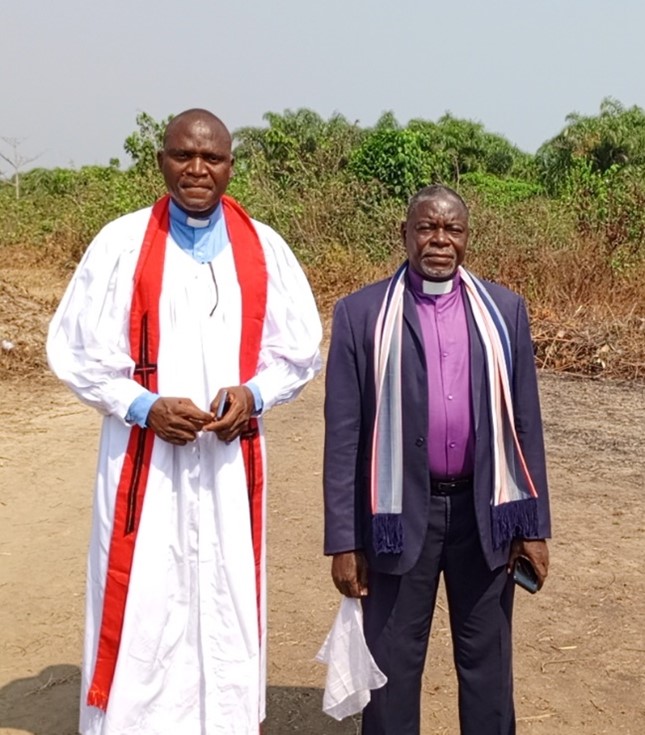The Imperative of Education: Concerned United Methodist Church Embarks on a Junior High School Project in Weala, Liberia
In the heart of Weala District, Margibi County, Liberia, a beacon of hope for educational advancement is emerging. The Concerned United Methodist Church, under the stewardship of Rev. Augustine S. K. Dakepine, has embarked on an ambitious project to construct a junior high school, a testament to their commitment to empowering the community through education. This endeavor represents a significant investment in the future, aiming to provide quality education and unlock opportunities for the youth of Weala. The project, estimated to cost US$156,000, is a collaborative effort, with the church seeking support from philanthropists, well-meaning Liberians, and church supporters. Rev. Dakepine, speaking at the 28th district conference in James Dennis Farm, Weala, on January 22, 2025, appealed to the public for assistance, emphasizing the church’s reliance on public support to bring this vital project to fruition. Despite the financial hurdles, construction has commenced, with the foundational layers being laid, demonstrating the church’s unwavering dedication.
The absence of a fixed timeframe for completion underscores the project’s dependence on securing the necessary funding. Rev. Dakepine clarified that the project’s timeline remains fluid due to the ongoing fundraising efforts. He emphasized that the junior high school project enjoys the full backing of the Annual Conference of the Concerned United Methodist Church members, further solidifying its importance within the church’s broader mission. To ensure transparency and accountability, Rev. Dakepine assured all potential donors that every contribution received will be exclusively allocated to the school project, guaranteeing the responsible and efficient utilization of funds. This commitment underscores the church’s dedication to upholding the highest ethical standards in the management of this critical initiative.
Beyond the immediate goal of constructing the junior high school, the Concerned United Methodist Church is actively engaged in a wider mission of community development. Their focus extends to building human capacity, enhancing infrastructure, and strengthening ministerial institutions, reflecting a holistic approach to upliftment. This multifaceted approach demonstrates the church’s understanding that true progress requires investing in people, structures, and spiritual guidance. The church’s commitment to education, infrastructure development, and ministerial growth demonstrates a comprehensive strategy to foster sustainable and positive change within the community.
This educational endeavor coincides with a period of internal reconciliation within the broader United Methodist Church. Rev. Dakepine reiterated the message of Bishop Alexander Dolo Kerkulah, extending an olive branch to those who have distanced themselves from the church due to the controversial "Regionalization Plan." This inclusive stance aims to bridge divides and foster unity within the church community. The "Regionalization Plan" has been a source of contention, leading to divisions within the United Methodist Church. The church leadership is actively seeking reconciliation and unity in the face of these internal challenges.
The controversy surrounding the “Regionalization Plan” adds another layer of complexity to the church’s current context. While the specifics of the plan remain unclear, its impact on the church’s structure and governance appears to be a source of concern for some members. The church’s leadership, however, is committed to addressing these concerns and fostering a more inclusive environment where all members feel valued and respected. Rev. Dakepine’s emphasis on unity and reconciliation underscores the church’s desire to move forward together, acknowledging differing perspectives while upholding the core values of the United Methodist faith.
This initiative to build a junior high school aligns with the Concerned United Methodist Church’s broader mission of empowering individuals and communities. By investing in education, the church seeks to create pathways for personal growth, economic empowerment, and social mobility. Education is recognized as a fundamental pillar for societal progress, and the church’s commitment reflects a deep understanding of its transformative power. The junior high school project symbolizes the church’s unwavering belief in the potential of young people and their capacity to shape a brighter future for themselves and their community. In a region where access to quality education can be limited, this project stands as a beacon of opportunity, promising to equip the next generation with the knowledge and skills necessary to thrive in a rapidly changing world.














